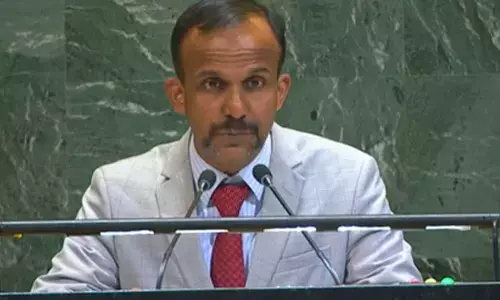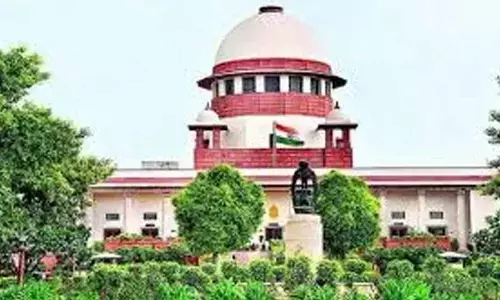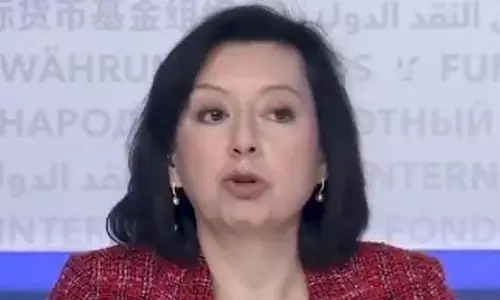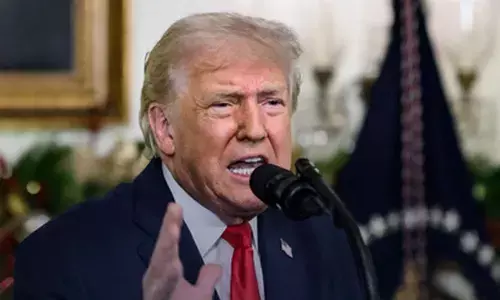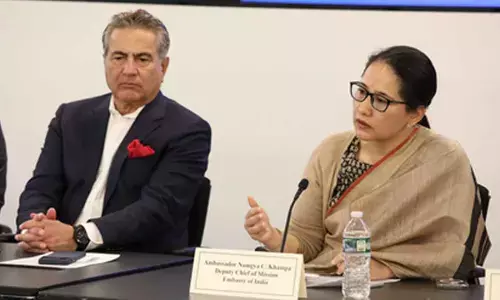Of notaries & their responsibilities

Public notary is a public office, with a long and distinguished history. The Legal Affairs Department of Union of India appoints some advocates, on application as per prescribed norms and qualifications, as notaries for the whole or any part of the country. State governments, too, appoint notaries for the whole or any part of the States.
Public notary is a public office, with a long and distinguished history. The Legal Affairs Department of Union of India appoints some advocates, on application as per prescribed norms and qualifications, as notaries for the whole or any part of the country. State governments, too, appoint notaries for the whole or any part of the States.
The Center has increased the fee for various activities of every notary by a Gazette Notification on 4th March 2014 (available on http://lawmin.nic.in/notary/notary.htm). This ensures fairly good income to notaries, which should naturally impose higher responsibility to preserve the records and pay damages if neglected. The duties and functions of notaries public are described in Brooke's Notary on page 19, as follows:
The falsification of documents is today’s foremost problem in scores of legal disputes, whether civil or criminal, department of Legal Affairs cannot be so callous about it. It demands immediate overhaul of record keeping by public authority, more specifically its agents, i.e., notariesso that they do not leave the records to termites
“Generally speaking, a notary public may be described as an officer of the law whose public office and duty it is to draw, attest or certify under his/her official seal deeds and other documents, including wills or other testamentary documents, conveyances of real and personal property and powers of attorney; to authenticate such documents under his signature and official seal in such a manner as to render them acceptable, as proof of the matters attested by him,
to the judicial or other public authorities in the country where they are to be used, whether by means of issuing a notarial certificate as to the due execution of such documents or by drawing them in the form of public instruments; to keep a protocol containing originals of all instruments which he makes in the public form and to issue authentic copies of such instruments; to administer oaths and declarations for use in proceedings to note or certify transactions relating to negotiable instruments, and to draw up protests or other formal papers relating to occurrences on the voyages of ships and their navigation as well as the carriage of cargo in ships."
Common man should know the duties and responsibilities of these notary-advocates, as per the law in our country. The Notary Act 1952, Section 8 explains the functions of notaries:
(1) A notary may do all or any of the following acts by virtue of his office, namely:-
(a)verify, authenticate, certify or attest the execution of any instrument;
(b)present any promissory note, hundi or bill of exchange for acceptance or payment or demand better security;
(c)note or protest the dishonour by non-acceptance or non-payment of any promissory note, hundi or bill of exchange or protest for better security or prepare acts of honour under the Negotiable Instruments Act, 1881 (XXVI of 1881), or serve notice of such note or protest;
(d)note and draw up ship’s protest, boat’s protest or protest relating to demurrage and other commercial matters;
(e)administer oath to, or take affidavit from, any person;
(f)prepare bottomry and respondentia bonds, charter parties and other mercantile documents;
(g)prepare, attest or authenticate any instrument intended to take effect in any country or place outside India in such form and language as may conform to the law of the place where such deed is entitled to operate;
(h)translate, and verify the translation of, any document, from one language into another;
(ha) act as a Commissioner to record evidence in any civil or criminal trial if so directed by any court or authority;
(hb) act as an arbitrator, mediator or conciliator, if so required;
(i)any other act which may be prescribed.
(2) No act specified in sub-section (1) shall be deemed to be a notarial act except when it is done by a notary under his signature and official seal.
Section 10 deals with removal of notary, by deleting his name from the register. It says: The Government appointing any notary may, by order, remove from the register maintained by it under Section 4 the name of the notary if he….has been found, upon inquiry in the prescribed manner, to be guilty of such professional or other misconduct as, in the opinion of the government, renders him unfit to practise as a notary;…
As per Section 12, any person who falsely represents that he is a notary without being appointed as such, or (b) practises as a notary or does any notarial act in contravention of Section 9, shall be punishable with imprisonment for a term which may extend to one year, or with fine, or with both.
Under Rule 11 of Notaries Rules 1956, it is prescribed:
(1) A notary in transacting the business under the Act shall use the Forms set forth in the Appendix to these rules;
(2) Besides recording declaration of payment for honour a notary shall also register notings and protests made. Every notary shall maintain a notarial register in the prescribed Form XV.] …;
(3) Each notary shall, before bringing the Notarial Register into use, add a certificate on the title page specifying the number of pages it contains. Such certificate shall be signed and dated by the notary; (4) Every notary shall permit the District Judge or such officer as the appropriate Government from time to time appoint in this behalf to inspect his register at such times, not often than twice a year, as the District Judge or officer may fix. District Judge or officer appointed by the State Government will have power to lodge a report to the appropriate Government for taking action against a notary.
As per Rule 14, every notary shall, in the first week of January every year, submit to the appropriate government, an annual return in Form XIV of the notarial acts done by him during the preceding year.
These annual returns of notarial acts are public records and people can have access to it.
The Notarial act (or deed) is the most important authentic act, which is globally recognised. In certain civil law jurisdictions, there is use of the Electronic Notarial Act (ENA) where the original is drawn up on electronic means and signed electronically.
In view of increasing global transactions, there is a need for having common Notary Act which can facilitate mutual authentication of notarial acts to help authentic documentation of world trade transactions. Hague Convention, that of 5 October, 1961, Abolishing the Requirement of Legalisation for Foreign Public Documents, aims at simplification of notarial authentication through issuance of Apostille by competent Authority in the state execution.
In 2010, a Model Notary Act was prepared in US as a comprehensive statute prototype designed to administrate notary programme in modernising and strengthening the Notary Public statutes in respective states. This Modal Notary Act contained several provisions for proper documentation, registration and facility to access the information of all notarial activities along with liabilities and penalties for negligence in maintaining register and inaccuracies in documentation.
Centre and State governments as the competent authorities are expected to regulate proper functioning by the Notary Public appointees and annually check their returns based on the properly maintained registers containing each and every transaction of authentication of documents. There are provisions for punishing for misconduct also.
There is a need to reform and strengthen the Notary Public activity in India to prevent fabrication of false documents affecting the credibility and legality of business transactions. The falsification of documents is today’s foremost problem in scores of legal disputes, whether civil or criminal, department of Legal Affairs cannot be so callous about it.
It demands immediate overhaul of record keeping by public authority, more specifically its agents, i.e., notariesso that they do not leave the records to termites. In this globalized transactions in commerce and property dealings, the public authority is also expected to update the notaries system and amend the law of notaries to address the issue of authentication of deeds leaving no scope for falsification of records and frauds, in the lines of Model Notary Act or international conventions.
The Department of Legal Affairs should have a system of securing records at Notary, maintaining the annual reports submitted by Notary in a systematic manner, taking action against non-furnishing of annual returns, not securing the records (like negligently facilitating the records to be eaten away termites or losing records by any other means) and for not reporting the damage caused to records within prescribed time limit, etc, and also to have an alternative mechanism to provide the ‘information’ if records are lost either because of termites or for any other reason, besides imposing liability for negligence.
By: Madabhushi Sridhar








